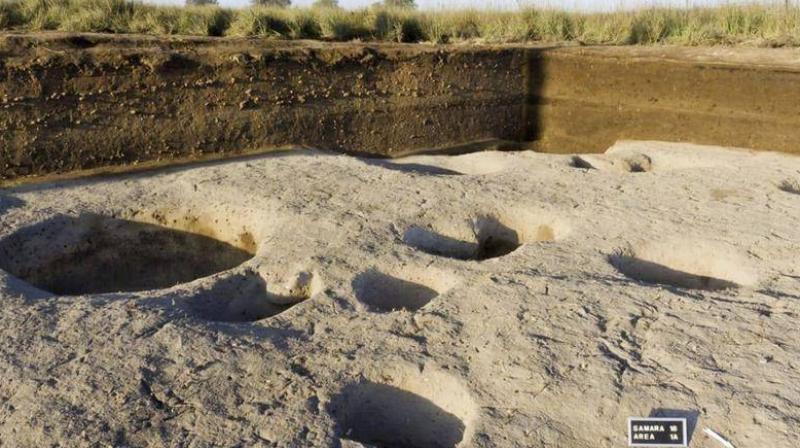Archaeologists discover Neolithic remains in Nile Delta

Archaeologists in Egypt say they have found one of the oldest-known villages in the Nile Delta dating back to the Neolithic era.
A joint Egyptian and French mission discovered several storage silos containing large quantities of animal and plant remains, as well as pottery and stone tools, the antiquities ministry said in a statement on Sunday.
The ministry said the find indicates that humans inhabited the fertile Tell al-Samara, in the northern province of El-Dakahlia, as early as the fifth millennium BC, far predating Egypt’s oldest known pyramid.
“Analysing the biological material that has been discovered will present us with a clearer view of the first communities that settled in the Delta and the origins of agriculture and farming in Egypt,” said Nadia Khedr, a ministry official responsible for Egyptian, Greek and Roman antiquities on the Mediterranean.
Rain-based Neolithic farming may hold vital clues to a technological leap that led to irrigation-based farming along the Nile.
Click on Deccan Chronicle Technology and Science for the latest news and reviews. Follow us on Facebook, Twitter.

